The Oxymoron of American J-Rock: A Closer Look at What Makes J-Pop and J-Rock Japanese
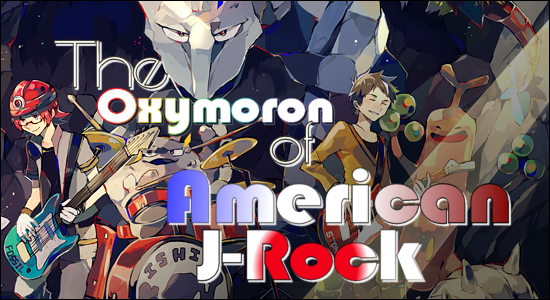
What the heck is American J-Rock? Better question: Do you know what J-Rock, or J-Pop for that matter, really means? While you probably think you have an answer, pinning down a definition can get a little messy. However, it’s key to understanding the popularity of J-Rock and J-Pop outside of Japan, and the growing movement in the West for a home-brewed version of this music.
![]()
Hayashi is the lead guitarist and band leader of akai SKY, an American J-Rock band that actively performs and records in the United States and is celebrating their 10th anniversary. akai SKY is performing at AnimeFest in Dallas, Texas which runs September 4-7, 2015. Follow akai SKY on Twitter at @AmericanJrock or find more info at akaisky.com.
![]()
If you got this far, you must have some concept of what Japanese popular music is, whether you’ve consciously defined it, or simply know it when you hear it. But let’s decouple the “J” from the “Rock” and “Pop.” The “J” stands for Japanese, but what definition of that word are you using? Japanese as in the language the songs are sung in? Popular bands like ONE OK ROCK, Ellegarden and MAN WITH A MISSION sing almost completely in English. Does that make those bands any less Japanese? If it’s not the language, then, does it refer to ethnically Japanese people who create this music? Half Japanese musicians like Olivia Lufkin and Jero and imports like Yohio or Beckii Cruel have made it big in Japan, so that’s not terribly accurate either. Instead, are we talking about Japan as the country of origin? Stars like Yoshiki from X Japan live and record music in Los Angeles, Utada Hikaru in New York, and Tomoyasu Hotei in London. There is more ambiguity in that little “J” than you realize and none of these things by themselves is enough to define this category of music.
I’m American and have been listening to Japanese music all my life. I’ve also been playing Japanese rock music for over a decade and have mulled over what it is that makes this music quintessentially Japanese. It’s occurred to me that classifying J-Rock and J-Pop comes down to two things: the audience it’s created for and at least one of the following two – the language or nationality of the people creating the music.
If the music is in the Japanese language and intended for a Japanese audience, that covers most of the music we consider J-Rock or J-Pop, including music by foreign artists. If the music is created by Japanese musicians and for a Japanese audience, that also covers Japanese bands that sing mostly in English. The target audience is the key, because in Japan they don’t refer to their own Rock or Pop music as “J-Rock” and “J-Pop”. It’s called J-Rock and J-Pop in the West to distinguish that the music is in another language or from a different country in the same way that K-Pop is used for Korean music or C-Pop for Chinese music.
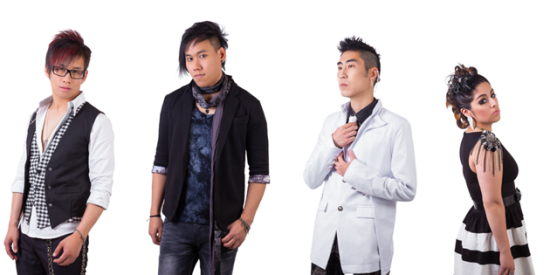
Now that we have an idea of what J-Rock is, what’s American J-Rock? It’s simply rock music created by Americans, for an American audience, sung in Japanese.
To be clear, American here means people from the United States of America. In both the United States and Japan, the word “America” is assumed to mean the United States of America as a country and in Japan Amerikajin is assumed to mean an American, a citizen from the United States of America.
A defining feature of American J-Rock is the Japanese lyrics. If you make music for a Western audience in English, it becomes indistinguishable from mainstream music that already caters to that audience. While there are bands that call themselves “J-Rock influenced” because they like Japanese music, if they only sing in English, it’s as vague and incorrect as saying a Japanese band is “American influenced” when they only sing in Japanese. There is also a very small and inconsistent community of bands who call themselves “Japanese influenced” in the West. Unless these bands include enka-style singing or feature shamisen and koto strings, it becomes hard to justify the title. It’s on par with having a group of chefs who personally enjoy sushi but bake French pastries and call their food “Japanese influenced.”
Creating Japanese lyrics is not easy for non-native speakers and singing Japanese lyrics to an English-speaking audience presents an additional challenge. Not many people in America would even consider listening to music in foreign language. But it’s because language can be such a barrier that it’s important to define American J-Rock in this way.
J-Rock and J-Pop were created for a Japanese audience, but also found fans in a niche group of foreign listeners, like us, that opened themselves to music from another country. So why go through all the trouble of writing music in Japanese for a Western audience who might not even understand all the lyrics?
Do you remember the first time you heard Japanese music in anime or a video game? Do you have a Japanese screen name? Do you add -chan or -kun to your friends names and say good morning in Japanese? Do you like to draw in the manga style or love to cosplay? Did all of this motivate you to learn Japanese or visit Japan? I can only speak from personal experience, but there was something about J-Rock made me sit up and say – yes, I want to learn to play guitar so I can play that kind of music. Once I did, I soon realized I didn’t just want to play it, I wanted to create it too and I wanted to cling onto the Japanese lyrics as an homage to this style of music that inspired me.
Now that you have a better understanding of J-Rock and J-Pop, consider giving American J-Rock a try and tell me in the comments how you first got into J-Rock or J-Pop music. I look forward to hearing how you became one of the elite few that also fell in love with it.



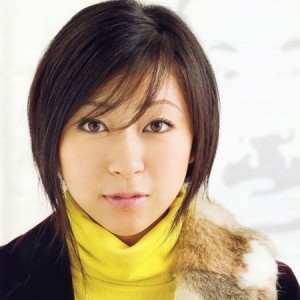
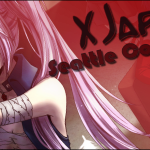

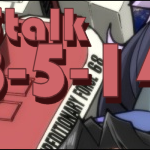
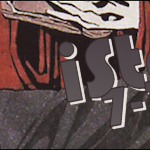



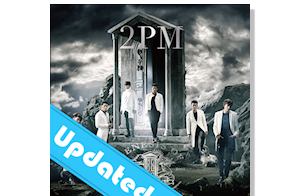





[…] akai SKY guitarist and band leader, Hayashi has written an article featured on 91.8 The Fan about American J-Rock. His post focuses on J-Pop and J-Rock in general and defines what American J-Rock is (and isn’t.) You might be surprised by a few of the points he makes, so make sure to check it out here. […]
Really good read.
For me it all started with the music of Yoko Kanno from the soundtrack of Cowboy Bebop. The jazzy style of music she created with the Seatbelts led me to collect almost every single OST from the series. This, in turn, expanded my interests not only in her music, but anime/anisongs in general.
Before I knew it, I was watching series like Bleach, which for as flawed of a series it was, featured incredible OP and ED songs from groups like Orange Range, High and Mighty Color, Scandal, Yui and Stereopony which further broadened my range and appreciation of J-Rock and J-Pop.
Reading up on the various back stories of the groups and their rises to success led me to look at indie J-Rock and J-Pop bands as well. There is such a huge amount of good music to be found in the indie scene!!
Thanks Maki! Yoko Kanno has such an eclectic catalog of music and is a great way to get in the world of Japanese music. My favorites from her are from Escaflowne, Macross Plus and Kids on the Slope.
There was that heyday of anime theme songs from all these major J-Rock bands. Really incredible wasn’t it!
I tell this story all the time but every time I go to Tokyo, I always go to live shows of indie J-Rock bands in Shimokitazawa. These bands are so talented and just need a voice to get out in the world!
Kids on the Slope is a series that I’ve been really wanting to watch after watching some PV’s of the music. Ahh, I could go on and on about Yoko Kanno’s influence on my music preferences and my pursuit of all things related to J-Rock and J-Pop! 😀
Oh I am sooo jealous! Seeing live shows is one of the many things I want to experience when I get the chance to visit Japan someday. Will definitely make sure to visit Shimokitazawa to experience that scene! 🙂
Though it’s been awhile since I’ve had a chance to do more articles for the station, the focus of Musikal Makinations was to bring that voice to the indie band scene among other artists that we may not know about as much as we should! It’s one of the ways I was able to find akai SKY (with some encouragement from a certain Kanashimi too!)
I’m hoping the interest in bands like yours continues to grow and encourages more bands on this side of the ocean to pursue the genre 😀
This was a fascinating article and I learned a lot. I did not know there were American bands who sang in Japanese for a Japanese and a small, minor Western audience. I listen to a lot of Japanese rock and metal bands, that of course mostly want a Japanese audience, but becuase of the internet you can listen to such things as Dir En Grey, Mary’s Blood and tons of other awesome artists.
There aren’t a lot of American J-Rock bands, but the number is increasing especially among musicians who discover more and more Japanese music. Most people first get exposed to Japanese music through way of anime, video games etc. and it’s really a great way for music targeted at a Japanese music to make it’s way state side. Dir En Grey was the first visual kei band I got exposed to!
I think the first Japanese artist I really listened to a lot was Megumi Hayashibara. After that it was Malice Mizer and by proxy Gackt. Besides that it was all anime music, but yeah, more and more people are falling in love with Japanese music. It’s awesome too see it spread to America, and it’s awesome to listen to it as well. Makes me wonder if there are any Canadian J-Rock bands, and if not, when there will be.
One of the first seiyuu’s music I listened to was Hayashibara Megumi too, especially from Slayers. I caught the Malice Mizer wave late myself, when Gackt had already left and they had Klaha singing lead. As for a Canadian J-Rock band, there was one band I was following for a bit called Hoshi Furu. Real hard punk sound I enjoyed but I haven’t seen an update since 2014. Hopefully they are still going at it. So hard to find like minded musicians!
Yeah, I got exposed to Japanese music through anime. In fact I was big into Jpop and the like before I was big into rock and metal. Actually, my love for rock and metal is due to the fact that I listened to a lot of Japanese rock and metal bands doing openings. Or in the case of Animetal which covered them. Your insight is cool.
It actually makes a lot of sense once you think about it for a while… Like how manga is defined by it’s the audience its for as much as what it contains.
Thanks for reading! That’s actually a nicely concise way to sum things up. Manga has a artistic certain style to it, and has some specifics about where the author is from and what language it’s in. But the audience is key!
i look forward to the next articale, my first intro too J-rock was Asian Kung-fu generation when they did the openings for FMA. thats what started my big anime kick i think
Asian Kung-Fu Generation is a great example of a J-Rock band with western appeal. They have an alternative rock vibe inspired by Weezer and really got their name out there with songs like Haruka Kanata and Rewrite. Their earlier work had songs almost all in English too!
[…] puts the “J” in J-Rock? Akai Sky lead guitarist Hayashi recently proposed an answer on 91.8 The Fan. “The target audience is the key,” he said, “because in Japan they don’t […]